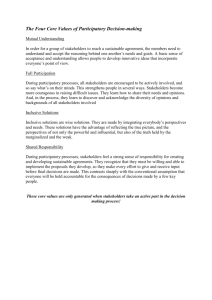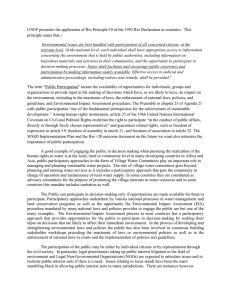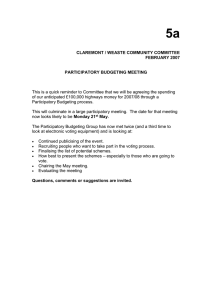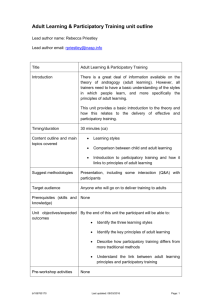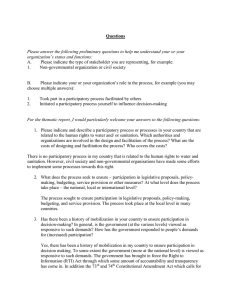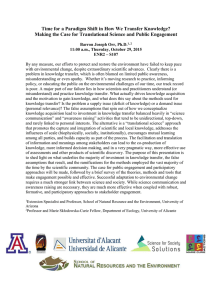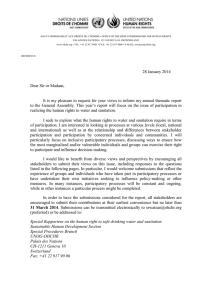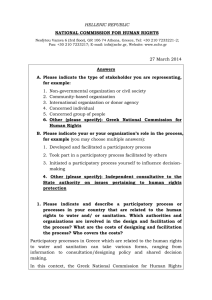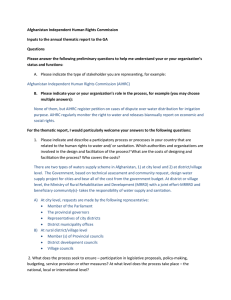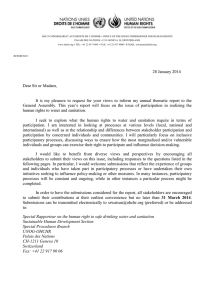Questions Please answer the following preliminary questions to help me understand... organization’s status and functions:
advertisement
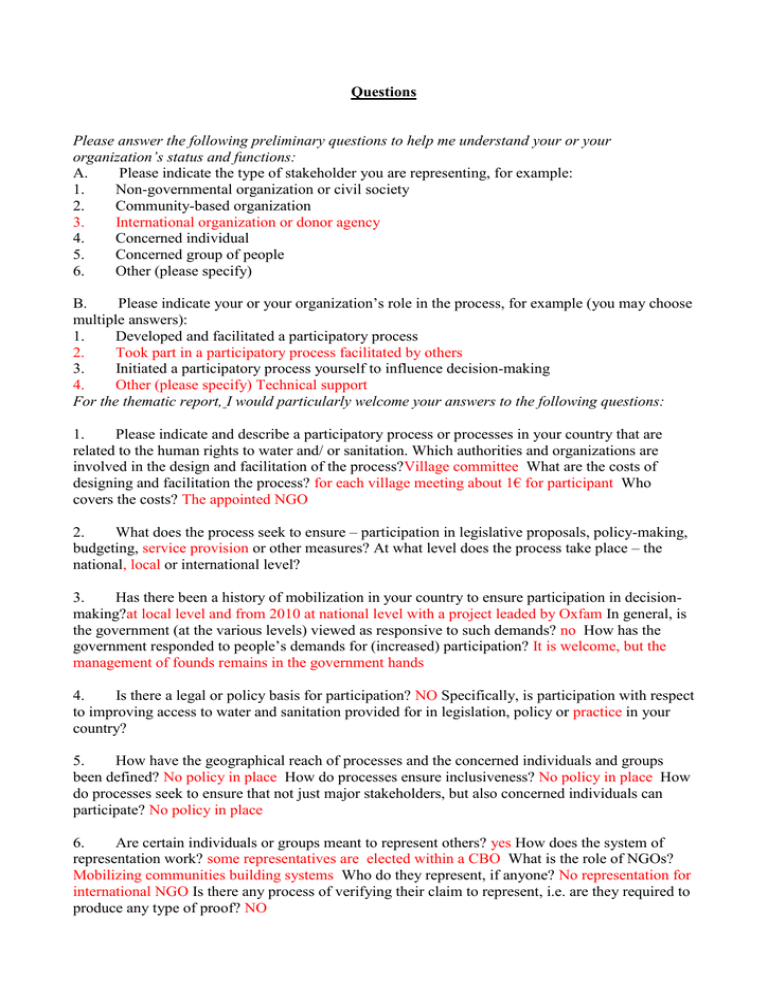
Questions Please answer the following preliminary questions to help me understand your or your organization’s status and functions: A. Please indicate the type of stakeholder you are representing, for example: 1. Non-governmental organization or civil society 2. Community-based organization 3. International organization or donor agency 4. Concerned individual 5. Concerned group of people 6. Other (please specify) B. Please indicate your or your organization’s role in the process, for example (you may choose multiple answers): 1. Developed and facilitated a participatory process 2. Took part in a participatory process facilitated by others 3. Initiated a participatory process yourself to influence decision-making 4. Other (please specify) Technical support For the thematic report, I would particularly welcome your answers to the following questions: 1. Please indicate and describe a participatory process or processes in your country that are related to the human rights to water and/ or sanitation. Which authorities and organizations are involved in the design and facilitation of the process?Village committee What are the costs of designing and facilitation the process? for each village meeting about 1€ for participant Who covers the costs? The appointed NGO 2. What does the process seek to ensure – participation in legislative proposals, policy-making, budgeting, service provision or other measures? At what level does the process take place – the national, local or international level? 3. Has there been a history of mobilization in your country to ensure participation in decisionmaking?at local level and from 2010 at national level with a project leaded by Oxfam In general, is the government (at the various levels) viewed as responsive to such demands? no How has the government responded to people’s demands for (increased) participation? It is welcome, but the management of founds remains in the government hands 4. Is there a legal or policy basis for participation? NO Specifically, is participation with respect to improving access to water and sanitation provided for in legislation, policy or practice in your country? 5. How have the geographical reach of processes and the concerned individuals and groups been defined? No policy in place How do processes ensure inclusiveness? No policy in place How do processes seek to ensure that not just major stakeholders, but also concerned individuals can participate? No policy in place 6. Are certain individuals or groups meant to represent others? yes How does the system of representation work? some representatives are elected within a CBO What is the role of NGOs? Mobilizing communities building systems Who do they represent, if anyone? No representation for international NGO Is there any process of verifying their claim to represent, i.e. are they required to produce any type of proof? NO 7. What are the opportunities for participation? The participation is free on voluntary base Are there consultations, hearings, opportunities to submit written responses and online fora? yes 8. What measures are in place to enable people to participate? Information at village and CBO level What measures are taken to overcome barriers that people face, in particular marginalized groups and individuals? Spread information with pre-meeting with groups 9. What channels have been used to disseminate information about the envisaged measures and the participatory process? Informing CBO representatives, local authorities and farmer groups 10. How are the inputs taken into account? Are accepted but final decision is taken also according with different factors What is the impact of participatory processes on decision-making and the design of measures and policies? The process is accepted and suggestions welcome but decisions are linked with budget availability 11. What follow-up has been put in place? No specific follow up is in place Are people informed about the outcome of processes? People can see the results only, successful process are presented on local press Are they informed about whether and how their proposals have been taken into account? indirectly 12. Would you describe the participatory processes as successful? yes If the specific process referred to above has been completed, please comment on what accounts for its success or failure. the success of the process depends by the involvement of population also in the construction of systems and the cost sharing of it Has the process been evaluated? yes What lessons does it offer for future processes? Population has to be aware that the availability of good water is not free of cost and the connected sanitation facilities are compulsory for environment and water protection
